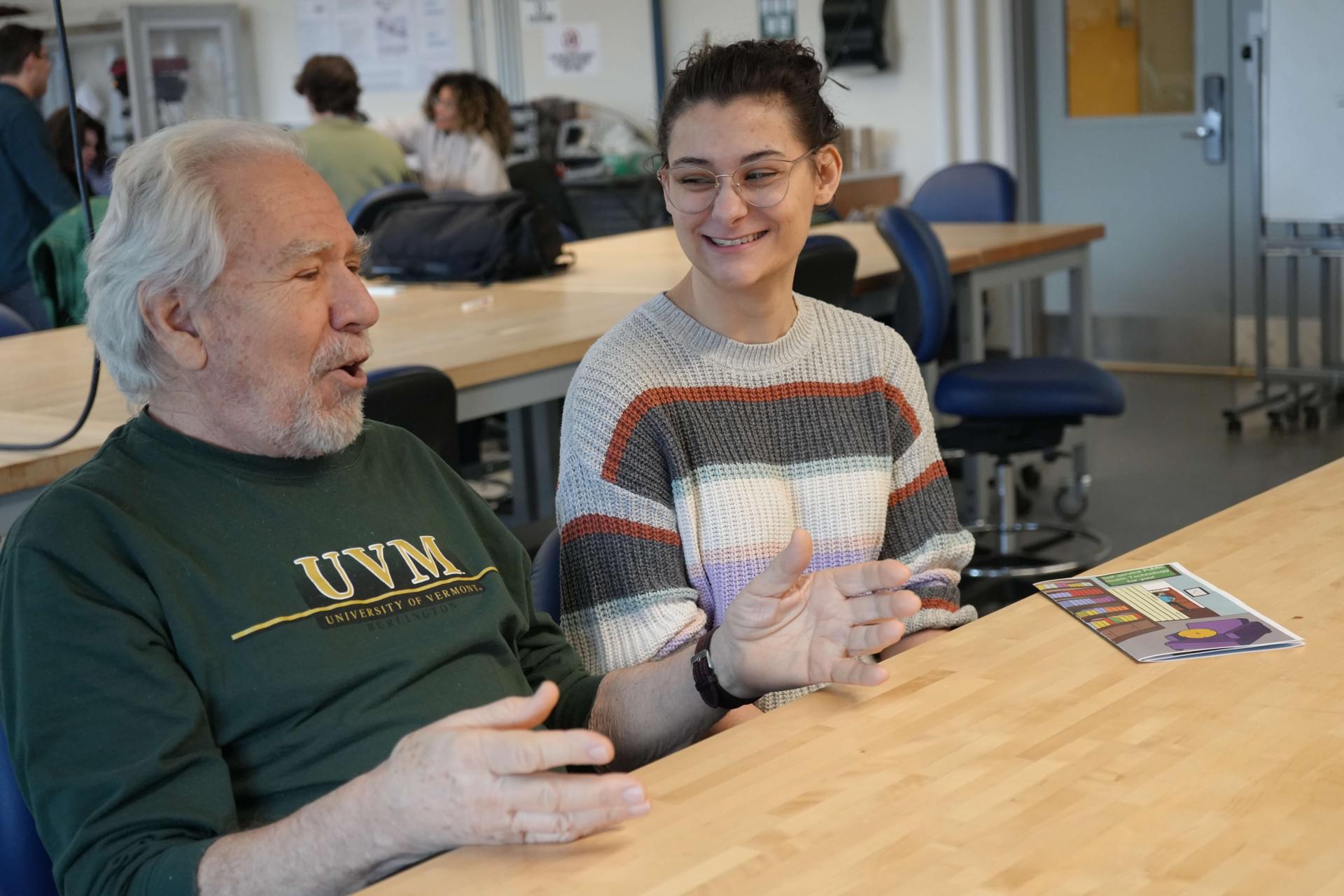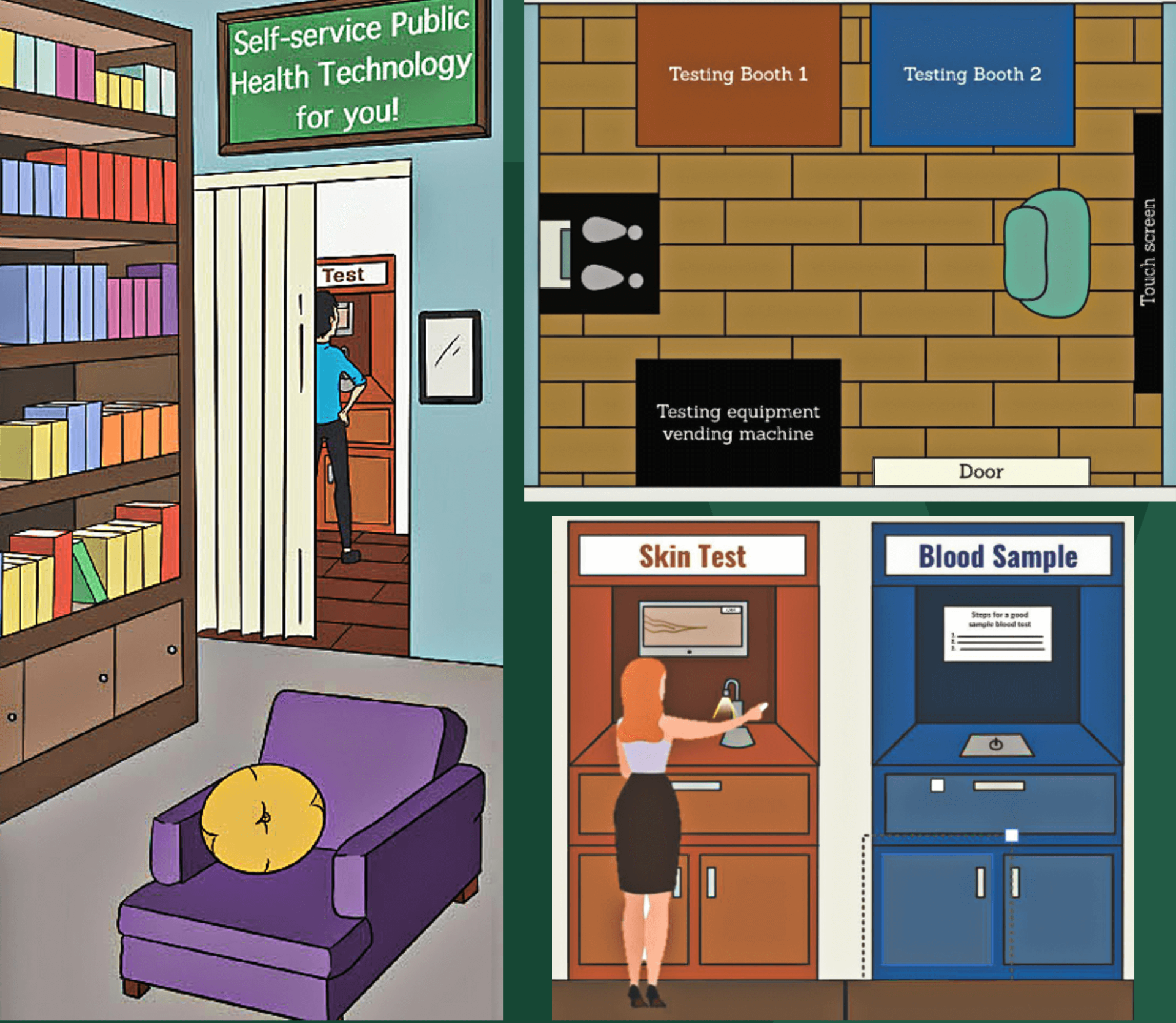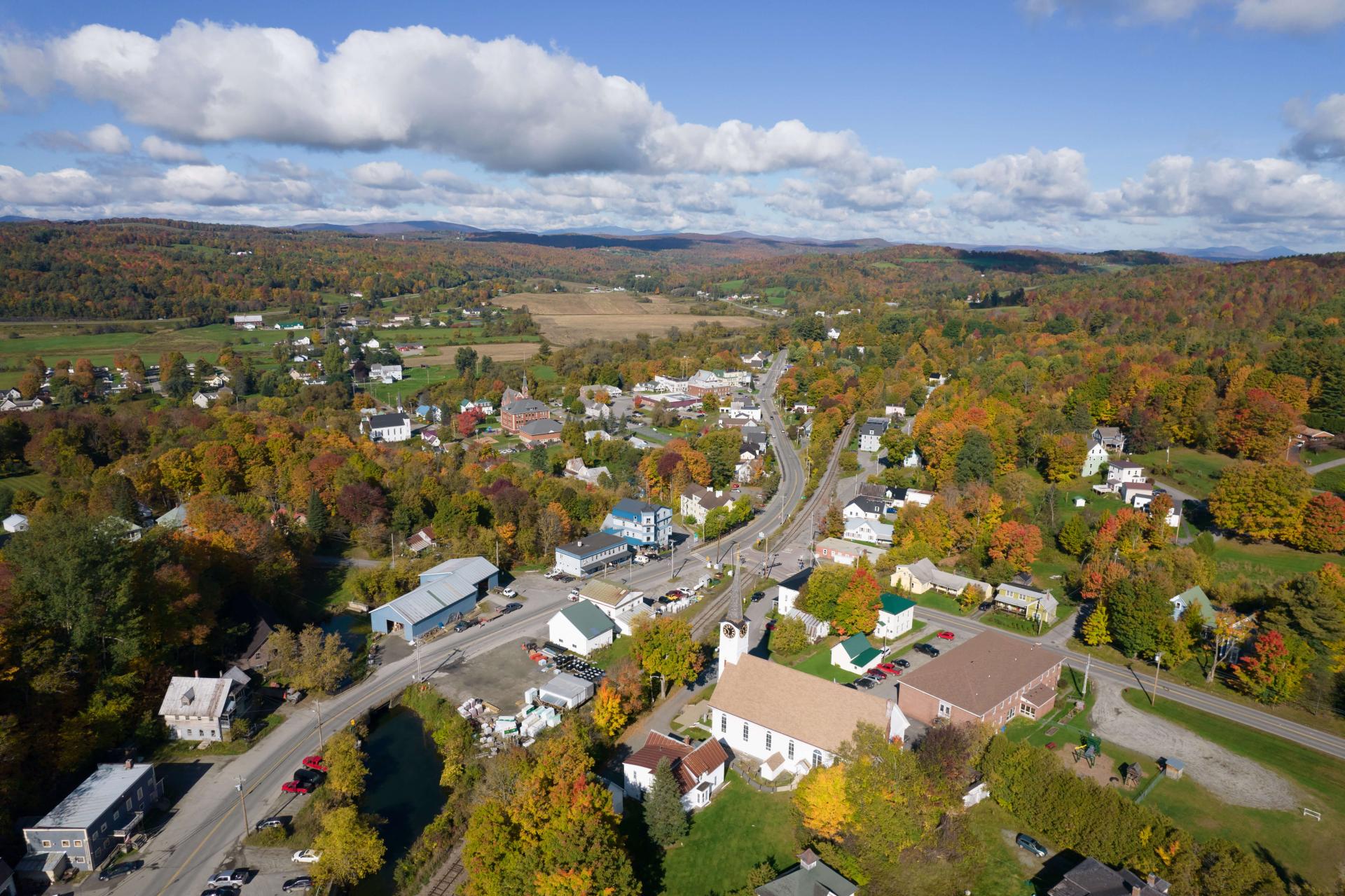The Need
Most people living in rural Vermont communities have to travel significant distances to get to a doctor's office or medical clinic. Those distances mean that too many people aren't getting the type of preventative health screenings that can keep them healthy.
"They're not getting to regular checkups to catch small health problems before they turn into bigger health problems," says UVM student Elaine O'Toole, a researcher on this project.
The need for these regular checkins becomes even more urgent for people who might have chronic conditions such as cardiovascular disease, lung disease, or diabetes.
The Proposed Solution
The partners in this project are developing self-service health screening kiosks that could be put in places that are already a part of rural residents' daily lives, such as town halls, community centers, libraries, schools and general stores. "We're trying to meet people at their point of need," says O'Toole.
If the long-term goals of this work can be realized, a person might be able to enter one of those community places and have a secure, private and easy way to check things such as eye health, balance, lung functioning, and cardiovascular health. The data could then be sent to the person's doctor, who could then determine if an in-person visit would be needed.

The Partnership
The partners on this project bring a diversity of expertise that is well suited to developing this self-service health screening technology.
The UVM Center for Biomedical Innovation's mission is to develop medical devices and systems that can improve health in rural communities. “Everything we do here is need-driven,” says Mike Rosen, the Center’s Interim Director. Their work includes the technical design, prototyping and testing of new technologies.
Importantly, they also remain firmly focused on the human side of the equation. Will people trust the technology, and be able to use it? Will their innovations target the needs as they actually exist in real-word settings? These questions coexist with technical questions as the Center tackles their work, and they are questions that are being addressed by the project's other partners.
The UVM Health Services Research Center conducts quantitative health services research to help improve the healthcare system. The UVM Health Network includes hospitals and medical centers throughout Vermont and upstate New York. With their collective experience, these two partners can ensure that the technology accounts for the patient experience, and that it targets the healthcare needs that are most likely to be improved through regular and accessible assessment.
The Preservation Trust of Vermont works to preserve and restore historic sites in communities throughout the state. They are deeply familiar with the community gathering centers that exist in those communities, and are connecting project partners to the sites where early research and assessments can take place, and where the kiosks, once developed, might be placed.

Video
Professor Mike Rosen and student-innovator Elaine O'Toole sat down with Tricia Coates, Director of the Leahy Institute, to discuss this project:
Project Details
| Community Partners: | |
| UVM Partner: | |
| Amount: | $10,000 (Capacity Grant) |
| Primary Region: | Statewide |
| Focus Areas: | Access to Health Care in Rural Areas |
